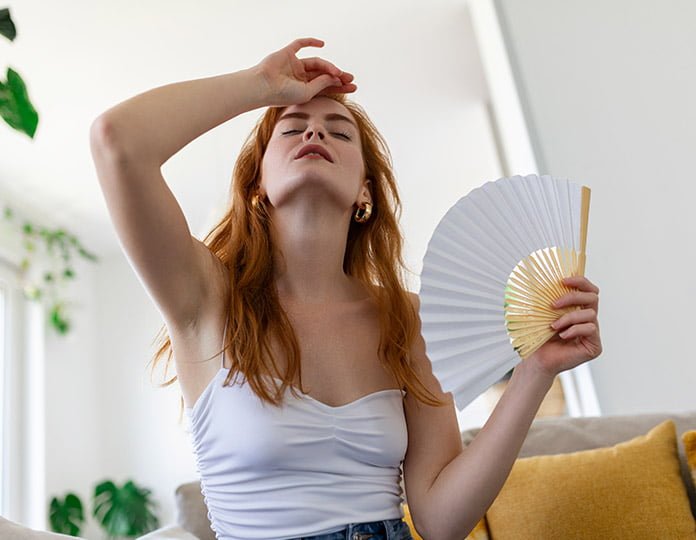Isn’t it hot today!! These are the statement we hear often these days. As the summers have already started the temperature of all the areas is increasing. Ministry of health and Family affair have even given guideline to protect yourself from heat.
Heat not only has a physical impact to your health but it can even cause mental health issues. This article talks about how this heat can lead to stress in the individual.
What is heat stress?
Heat stress, which can result in a number of heat-related ailments. It can be detrimental for our bodies when exposed to high temperatures. The origins, signs, and prevention of illnesses that might result from exposure to high indoor or outdoor temperatures will be covered in this article.
When our bodies are unable to control their temperature, we experience heat stress and become overheated. Dehydration, heat cramps, heat exhaustion, or even life-threatening heatstroke can be caused by excessive heat.
High humidity, exercise, wearing bulky clothing or personal protection equipment (PPE), specific medical problems, and using particular drugs are some of the variables that might cause heat stress. When temperatures rise, our bodies attempt to cool ourselves by perspiring. High humidity, on the other hand, prevents sweat from evaporating, which impairs the body’s capacity to control its temperature.
Increased body heat generation can also result from exercise and wearing bulky clothing or personal protective equipment (PPE). The body may have a tougher time controlling its temperature if it has heart disease, is obese, or has diabetes. Additionally, several drugs can impair our body’s capacity to sweat and cool down, including beta-blockers, antihistamines, and diuretics.
Symptoms of heat stress
From moderate to severe, heat-related illnesses can cause a variety of symptoms, such as:
Dehydration: Thirst, dry mouth, headache, wooziness, weariness, dark urine, and dry skin are symptoms of dehydration.

Heat cramps: Perspiration and muscle cramps, especially in the arms, legs, or abdomen.
Heat Cramp: Heavy sweating, fatigue, headaches, nausea, vomiting, a fast heartbeat, low blood pressure, and cool, clammy skin are all symptoms of heat exhaustion.
Heat Exhaustion: Excessive body temperature (above 104°F or 40°C), confusion, seizures, loss of consciousness, and even coma are symptoms of heatstroke, a medical emergency.
Suggestions to avoid heat exhaustion:
It is imperative to take care when exposed to high temperatures, whether inside or outside, to avoid heat-related ailments. Here are some suggestions for avoiding heat exhaustion:
- Avoid alcohol and caffeine, which can cause dehydration, and drink lots of water to stay hydrated.
- Take regular stops to rest and cool off. Do this in settings that are shaded or air-conditioned.
- Inappropriate attire Put on breathable, light-colored clothing that is loose-fitting. Shield yourself from the sun by using hats or umbrellas.
- Utilise air conditioning during the hottest times of the day, keep windows and doors closed and use fans or air conditioning to cool down indoor spaces.
- Keep an eye on the weather before indulging in any outdoor activities. Check the temperature and humidity levels, and stay out of the sun’s direct rays.
- Pay attention to your family, friends, and neighbours, especially if they’re elderly, ill, or living alone.
Therefore, exposure to high temperatures indoors or outdoors can cause heat stress, which can result in illnesses related to the heat. High humidity, physical exertion, wearing bulky clothing or personal protective equipment, specific medical problems, and taking specific medications are only a few of the causes of heat stress. Staying hydrated, taking pauses in shaded or air-conditioned areas, dressing appropriately, using air conditioning, being mindful of the temperature. Checking on others are an important preventative measures to avoid heat-related illnesses. To avoid future consequences, get medical assistance right away if you exhibit symptoms of a heat-related disease. Keep cool and safe during the sweltering summer months!